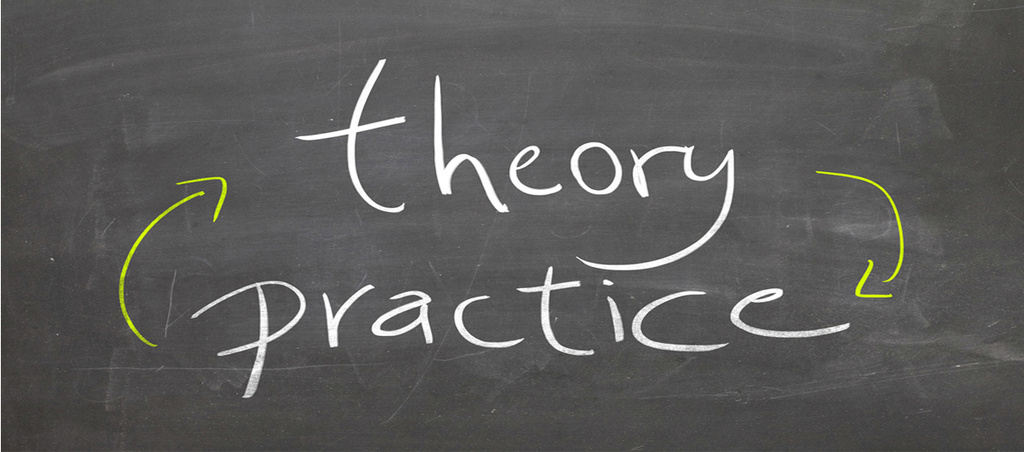
Theory, Practice, and the Incarnation
In the modern era, many churchmen lack a practical bent. Because they do not understand the world, their theology is little more than pious gush devoid of practical application.
- John B. King, Jr.
In the modern era, many churchmen lack a practical bent. Because they do not understand the world, their theology is little more than pious gush devoid of practical application. Moreover, because such theology is necessarily irrelevant to human vocation, the practical deficiencies of the clergy engender theoretical deficiencies in the laity. As a result, many faithful Christians are left to stumble through major areas of life apart from a guiding theology. Thus, an impractical clergy begets a theologically ignorant laity and hence a culturally irrelevant church.
In light of the incarnation, however, the division between theory and practice is false. After all, since the Word has become flesh, the very depths of the divine Wisdom or Logos have become manifest in the practical affairs of daily life. Thus, the very nature of the incarnation demands a high level of theoretical precision and practical application as Christ's church seeks to "incarnate" a heady theology into daily practice. In other words, the incarnation demands the type of theology in which "the rubber meets the road."
It is in the fulfillment of these twin demands that the theology of R. J. Rushdoony is of singular excellence, for he was both a theoretical and a practical man. For instance, in The Foundations of Social Order, Rushdoony set forth a rigorous theology together with its practical implications for political liberty. Moreover, in The One and the Many, he examined the doctrine of the Trinity in light of its practical implications for social order, philosophy, and even knowledge itself. In his refusal to separate theory and practice, Rushdoony sought to empower all Christians by challenging the theological provincialism of the clergy. In so doing, he provided a synthetic perspective of amazing scope and breadth which integrates every area of life and thought into an optimistic theological framework. Thus, Rushdoony's thought is both incarnational and seminal in bridging the modern gap between theology and life.
Of course, in all his work, this fidelity to the incarnation was self conscious and deliberate.
Indeed, Rushdoony named his foundation after the very Council of Chalcedon at which the doctrine of the incarnation was defined. As Rushdoony saw it, the incarnation has significant implications for political liberty and human culture. In particular, since Christ's divine and human natures are said to be in union without confusion, there is both a distinction and a relation between God and His creation. Due to this Creator-creature distinction, there is an infinite qualitative difference between God and man which limits the divine pretensions of the state. Thus, Rushdoony logically saw the Chalcedonian theology as the foundation of Western liberty. Yet, because the creation is also related to God, it is permeated by divine wisdom and is thus a legitimate sphere for the application of sound theology. Accordingly, by placing an equal emphasis on the Creator-creature relation, Rushdoony set forth a culturally relevant, incarnational theology in which "the rubber meets the road."
Finally, this incarnational theology was also manifest in his concern for people. About ten years ago, I began coming up to visit Dr. Rushdoony.1 I would have lunch with him and his wife Dorothy and, in more recent years, with his son Mark as well. Initially, I thought of him as a "theological guru," but over time he became my friend, even helping me to attend seminary. I always enjoyed our lunches together but wondered why such a great man would spend time with such an ordinary person like me. In retrospect, I see this especially as a mark of his greatness in that he had a heart for the little people. Indeed, because of his fidelity to the incarnation and the personalism which this doctrine implies, he knew that his theology was useless apart from its ability to minister to concrete, flesh and blood people. And so, he was gracious to me in giving of himself. Thus, to all his critics who have denounced him as a legalist, I can only say that in his friendship to me, he embodied the Gospel. He dealt with me in light of the fact that the Word has become flesh.
Notes
1. On a humorous note, my grandfather once asked me whom I had gone to see. When I told him that I had gone to see Dr. Rushdoony, He said, "Rushdoony? What's he doing up in the hills? Isn't that the guy the Ayatollah's after?" I answered, "No Pop. That's Salmon Rushdie." Rushdoony got a kick out of this story.
- John B. King, Jr.
John B. King, Jr., a free lance writer from Corvallis, Oregon, holds a Ph.D. in engineering. He is also a graduate of Westminster Theological Seminary West. He can be contacted at [email protected].